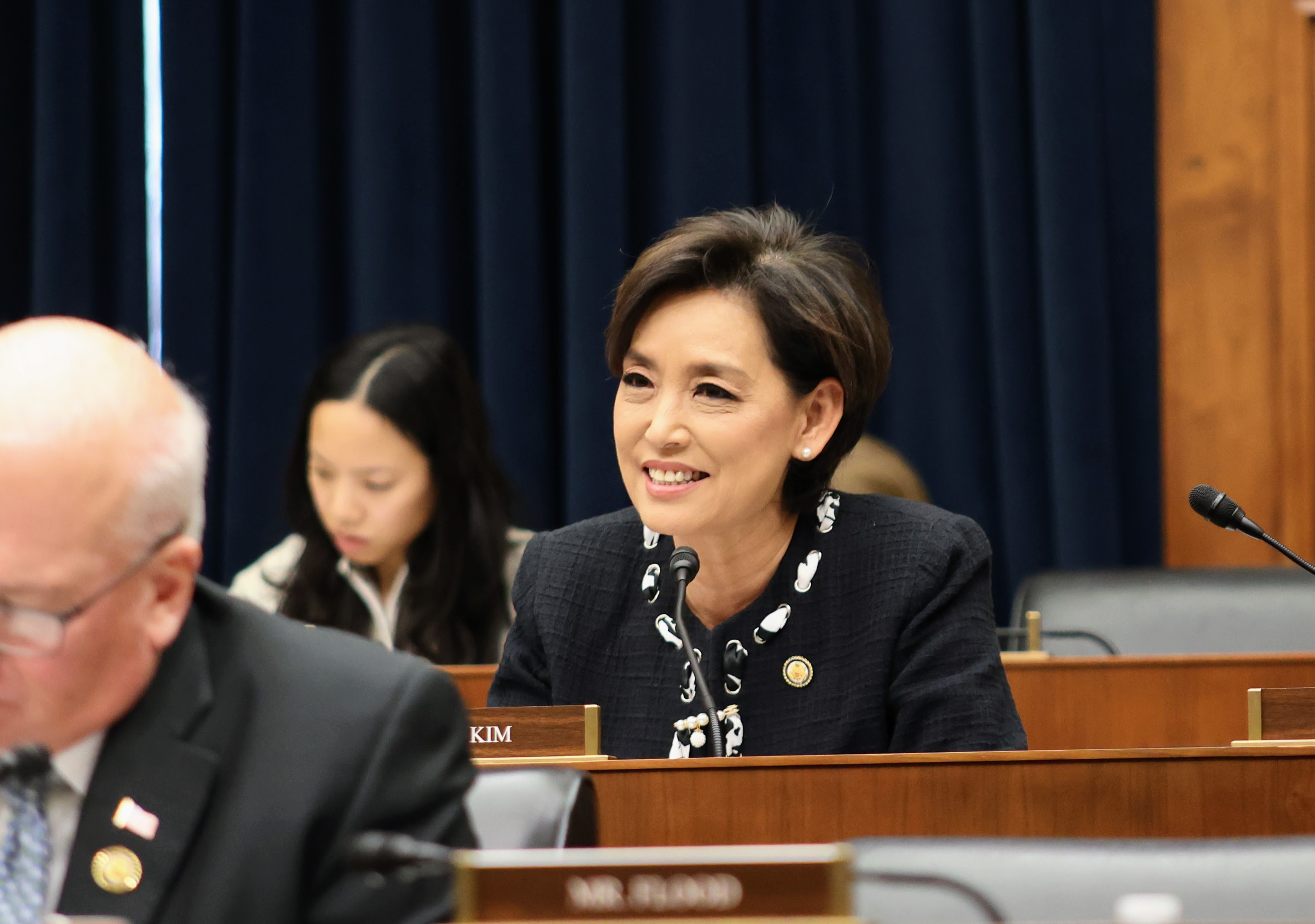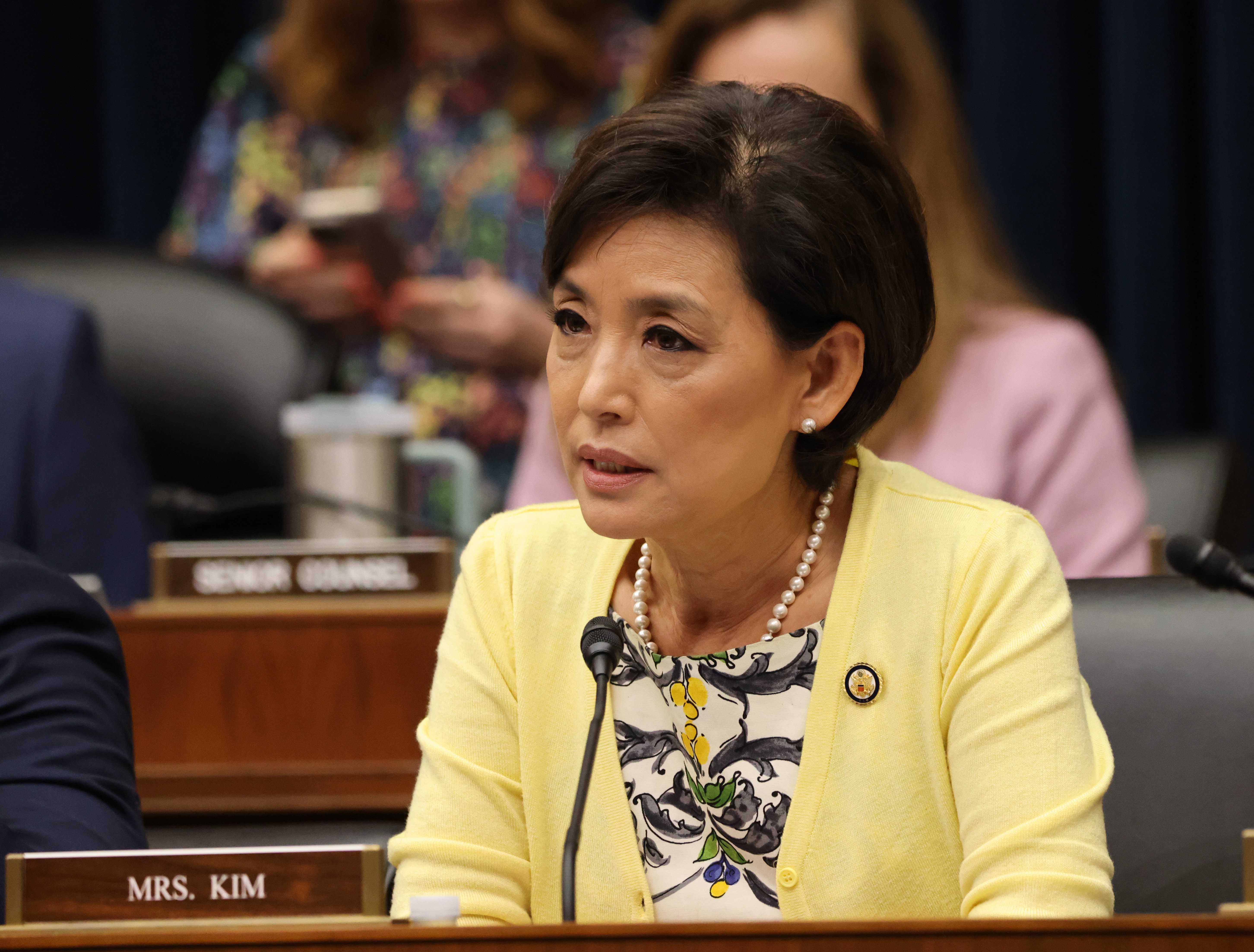U.S. Reps. Young Kim (R-CA), Ann Wagner (R-MO), Bill Huizenga (R-MI), French Hill (R-AR), Andy Barr (R-KY), and Andrew Garbarino (R-NY) on Jan. 18 offered legislation that would bolster congressional oversight of the Securities and Exchange Commission (SEC).
“Policies should make life easier for Americans, not harder. The SEC has proposed more than 50 rules in just three years — sidelining Congress, stifling access to capital and innovation, and burdening small businesses, investors, and consumers alike,” Rep. Kim said. “We ought to preserve our country’s preeminence in the capital markets and competitive edge in the world.”
Rep. Kim sponsored the Review the Expansion of Government (REG) Act, H.R. 7030, alongside her five Republican colleagues to counter overregulation by the SEC and to ensure rules are working as intended.
“The REG Act is a common-sense bill to conduct oversight on the Biden administration’s burdensome regulations,” said Rep. Kim.
If enacted, H.R. 7030 would require the SEC to review final rules and regulations every five years, and to determine whether revision or repeal of a rule is necessary or appropriate to fulfill the SEC’s three-part mission, according to a bill summary provided by the lawmakers.
Additionally, H.R. 7030 would require the SEC to establish a plan to carry out the rule review process, report to Congress with findings on the review process, and consider the cumulative costs of rules and regulations, the summary says.
The REG Act is “… designed to rein in bureaucracy and require timely reviews of the SEC’s regulatory process,” Rep. Huizenga said. “The REG Act would also improve oversight of the SEC by ensuring the agency maintains its focus on capital formation and investor protection and does not exceed the authority granted to it by Congress.”
Rep. Hill pointed out that the SEC needs to follow its mission to protect investors, maintain orderly and efficient markets, and enable capital formation.
“I support strengthening guardrails around the SEC’s rulemaking process to ensure any rulemaking that does not advance the commission’s mission is retracted,” said Rep. Hill.
At the same time, Rep. Barr said that under the leadership of SEC Chairman Gary Gensler, the SEC’s “aggressive regulatory overreach” threatens the stability and prosperity of U.S. capital markets.
“The REG Act will rein in the SEC’s understudied rulemaking agenda and ensure that the cumulative costs of regulations are no longer ignored but are a central consideration in our pursuit of a fair and efficient financial market,” said the congressman.
Rep. Garbarino agreed, noting that executive rulemaking must be done responsibly and intentionally to avoid burdensome and costly regulations, and it should consider the latest developments in U.S. capital markets and emerging technologies.
“Given the sheer number of recently proposed rules by the SEC, establishing a rule review process will allow for congressional oversight to ensure that the SEC is abiding by its own mission in the rulemaking process and not exceeding its statutory authority,” said Rep. Garbarino.
H.R. 7030 has been referred for consideration to the U.S. House Financial Services Committee.




